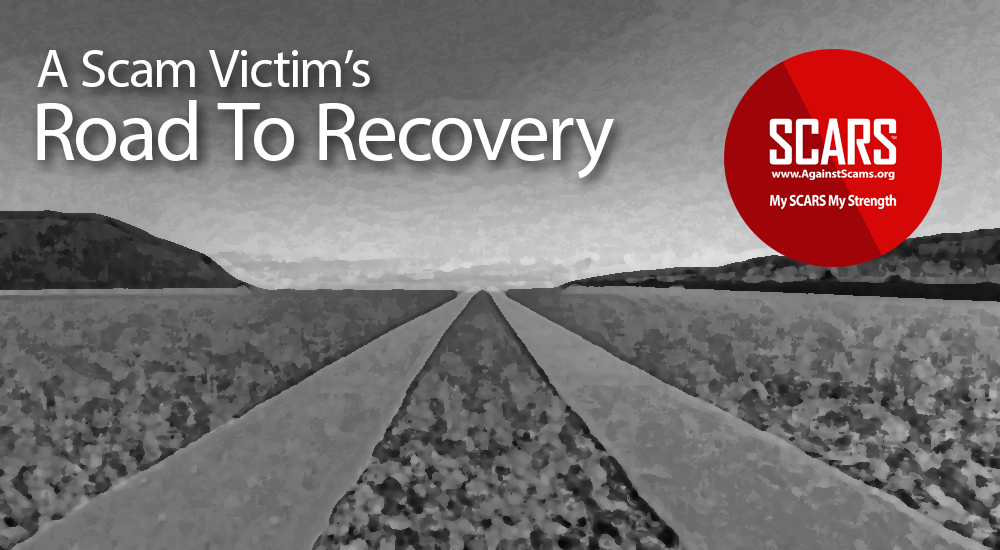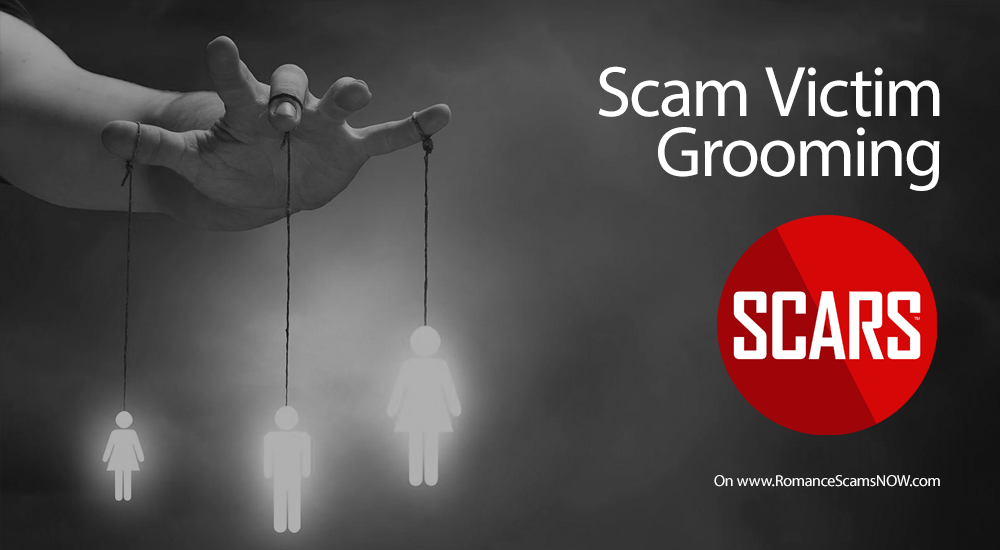Why Does A Scam Victim Become More Vulnerable After A Scam Than Before?
Why does a scam victim become more vulnerable after the scam and the trauma it produces than they were before the scam and the trauma?
SCARS believes that there are several reasons for this.
These are the 7 Deadly Sins of Post Scam Victim Vulnerability:
1. Cognitive Dissonance:
Cognitive dissonance is a mental conflict that occurs when a scam victim’s beliefs don’t line up with their actions. It’s an uncomfortable state of mind when someone has contradictory values, attitudes, or perspectives about the same thing. The degree of discomfort varies with the subject matter, as well as with how well the person copes with self-contradiction. One example is a smoker who knows all too well that nicotine causes lung cancer but takes puff after puff anyway to ease his anxiety in the moment—and then feels a sense of shame. There’s some sort of discrepancy between what your values are and what you feel at that moment. In the case of scam victims, this shows as taking risks again on dating websites or social media that should never be taken.
2. Cognitive Impairment:
Scam victims who suffer trauma in childhood or adulthood may experience a greater amount of cognitive decline as they age than individuals who haven’t experienced trauma, a new study found. This means that decision-making can be significantly affected, either by reduced logical function or increased emotional reactiveness. It is very common for a scam victim to complain about fuzzy thinking or a “brain fog” (what we call a “scam fog”) in the months following the end of the scam.
3. False Healing:
Many scam victims believe they are psychologically healed far faster than they actually are or able to heal. We see this all the time in scam victims who believe after a couple of months they are great when the reality is it may take far more than a year to heal.
4. Cognitive Biases:
A cognitive bias is a flaw in our thinking that distorts the way we perceive and act. The present estimate, according to Wikipedia, is that there are 140 of them others show 188. A cognitive bias is not classified as pathological but rather as a normal, perhaps even helpful event in our daily lives. Most of them however seem distinctly unhelpful. They can be countered, so neurologists tell us, by our awareness of them, by logic, and by reflective thinking: though getting rid of habitual ones, they caution, can be a heavy energy demand on the neocortex. After a scam, scam victim biases can become amplified and a victim can place greater reliance on their biases as other mental functions are impaired.
5. Faith In External Entities:
During the scam, every scam victim had faith in the scammer drilled into them through manipulation and control. However, after the scam that part of your mind that believed so strongly remains active and it is very easy to transfer your own agency to yet another external entity rather than assume control of yourself. Many scam victims increase their belief in god, fate, karma, etc. as a way of seeking answers and looking to find stability in a hostile and dangerous world. This outsourcing of your own agency often increases as trauma increases and not only makes it harder to recover, but also just to remain safe – online and in the real world.
6. Unrealistic Faith In Others:
After the scam, almost all scam victims just “know” that they will be better if they can just talk and share with other victims of scams. This opens a giant backdoor into your mind that these others can pour through. This allows other broken people to influence what you believe, embed false knowledge and urban legends, and profoundly influence your ability to recover and emotionally heal. This is so impactful that it is one of the two main reasons that victims do not recover.
7. Anger & Hate, and the Other 4 sisters of Grief:
Anger is a normal part of the grief process. But if allowed to grow it quickly turns into hate. Scam victims can seize onto hate in as little as a couple of weeks after the scam ends – depending on how it ends and the support that they find. Likewise, the other phases of grief can have a huge impact on everything from your emotions to your thinking and decision-making. These leave most scam victims significantly impaired for many months, sometimes years depending on the attention that they have given to their recovery.
How do you counter these?
While the answer to this is very simple, in practice it is complex and requires serious inward exploration by every scam victim.
The simple answer is to stop reacting emotionally, give everything time before deciding, stop making assumptions, remove equivocation and minimization from your speech patterns, and firmly understand your vulnerabilities. But in reality, this is very hard for a scam victim.
It is hard to admit to yourself that you are wounded and that you cannot do what you did before. You are not as resilient, mentally strong, or even as intelligent as you were before. Things will trigger responses and some of them will not be big emotional outbursts but rather biases in the decisions that you are making. It is hard to even be sure when your vulnerabilities are showing and causing actions or effects.
The ways you can counter these are as follows:
Journal every day – this gives a scam victim a log of their feelings and actions that allow them to look back and compare with the present. This is also wonderful to see the progress you are making over time.
Understand each Trigger as it happens – when you feel triggered stop and think about what just happened. Why it happened, and what was the cause? Then you can consciously choose better outcomes.
Have a Decision Buddy – Every scam victim needs someone they can trust whom they can talk to about decisions that they have to make and get another person’s (less broken person’s) feedback. Stay in constant contact with them to explore what is happening with you – that can be our group, a counselor or therapist, or a friend or family member.
Actively Participate in the Support Group – participating provides a scam victim with positive reinforcement and helps them to redevelop those broken mental skills. It provides a place to explore what you are feeling, your fears, and the things that are going wrong or right. To sign up for a SCARS support & recovery group please visit support.AgainstScams.org
Learn Learn Learn – use our resources and others online to begin to really understand your mind and how it works when traumatized. Start with RomanceScamsNOW.com and Google from there. But be careful, there is a lot of false information out there that can derail your recovery. If you find something interesting share it with the SCARS Team to make sure it both applies to scam victims and that it is accurate, the same for your counselor or therapist – these are your two truth validators. SCARS cannot diagnose you, but we can tell you if it applies in general.
These will give you a framework that you can use (along with everything else) to help yourself progress more safely through your recovery!
SCARS Resources:
- Getting Started Right: ScamVictimsSupport.org
- For New Victims of Relationship Scams newvictim.AgainstScams.org
- Subscribe to SCARS Newsletter newsletter.againstscams.org
- Sign up for SCARS professional support & recovery groups, visit support.AgainstScams.org
- Join our Scam Survivors United Chat & Discussion Group facebook.com/groups/scam.survivors.united
- Find competent trauma counselors or therapists, visit counseling.AgainstScams.org
- Become a SCARS Member and get free counseling benefits, visit membership.AgainstScams.org
- Report each and every crime, learn how to at reporting.AgainstScams.org
- Learn more about Scams & Scammers at RomanceScamsNOW.com and ScamsNOW.com
- Scammer photos ScammerPhotos.com
- SCARS Videos youtube.AgainstScams.org
- Self-Help Books for Scam Victims are at shop.AgainstScams.org
- Donate to SCARS and help us help others at donate.AgainstScams.org
- Worldwide Crisis Hotlines: https://blog.opencounseling.com/suicide-hotlines/
Other Cyber Resources
- Block Scam Domains: Quad9.net
- Global Cyber Alliance ACT Cybersecurity Tool Website: Actionable Cybersecurity Tools (ACT) (globalcyberalliance.org) https://act.globalcyberalliance.org/index.php/Actionable_Cybersecurity_Tools_(ACT)_-_Simplified_Cybersecurity_Protection
-/ 30 /-
What do you think about this?
Please share your thoughts in a comment below!
Do You Need Support?
Get It Now!
SCARS provides the leading Support & Recovery program for relationship scam victims – completely FREE!
Our managed peer support groups allow victims to talk to other survivors and recover in the most experienced environment possible, for as long as they need. Recovery takes as long as it takes – we put no limits on our support!
SCARS is the most trusted support & education provider in the world. Our team is certified in trauma-informed care, grief counseling, and so much more!
To apply to join our groups visit support.AgainstScams.org
We also offer separate support groups for family & friends too.
Become a
SCARS STAR™ Member
SCARS offers memberships in our STAR program, which includes many benefits for a very low annual membership fee!
SCARS STAR Membership benefits include:
- FREE Counseling or Therapy Benefit from our partner BetterHelp.com
- Exclusive members-only content & publications
- Discounts on SCARS Self-Help Books Save
- And more!
To learn more about the SCARS STAR Membership visit membership.AgainstScams.org
To become a SCARS STAR Member right now visit join.AgainstScams.org
To Learn More Also Look At Our Article Catalogs
Scam & Crime Types
More SCARS
- ScamsNOW Magazine – ScamsNOW.com
- ContraEstafas.org
- ScammerPhotos.com
- AnyScam.com – reporting
- AgainstScams.org – SCARS Corporate Website
- SCARS YouTube Video Channel










![An Example of How Scammers Use Emergency Scams - 2014 [UPDATED 2024] - on SCARS RomanceScamsNOW.com](https://romancescamsnow.com/wp-content/uploads/2014/06/emergency-scams.png)


Please Leave A Comment - Tell Us What You Think About This!